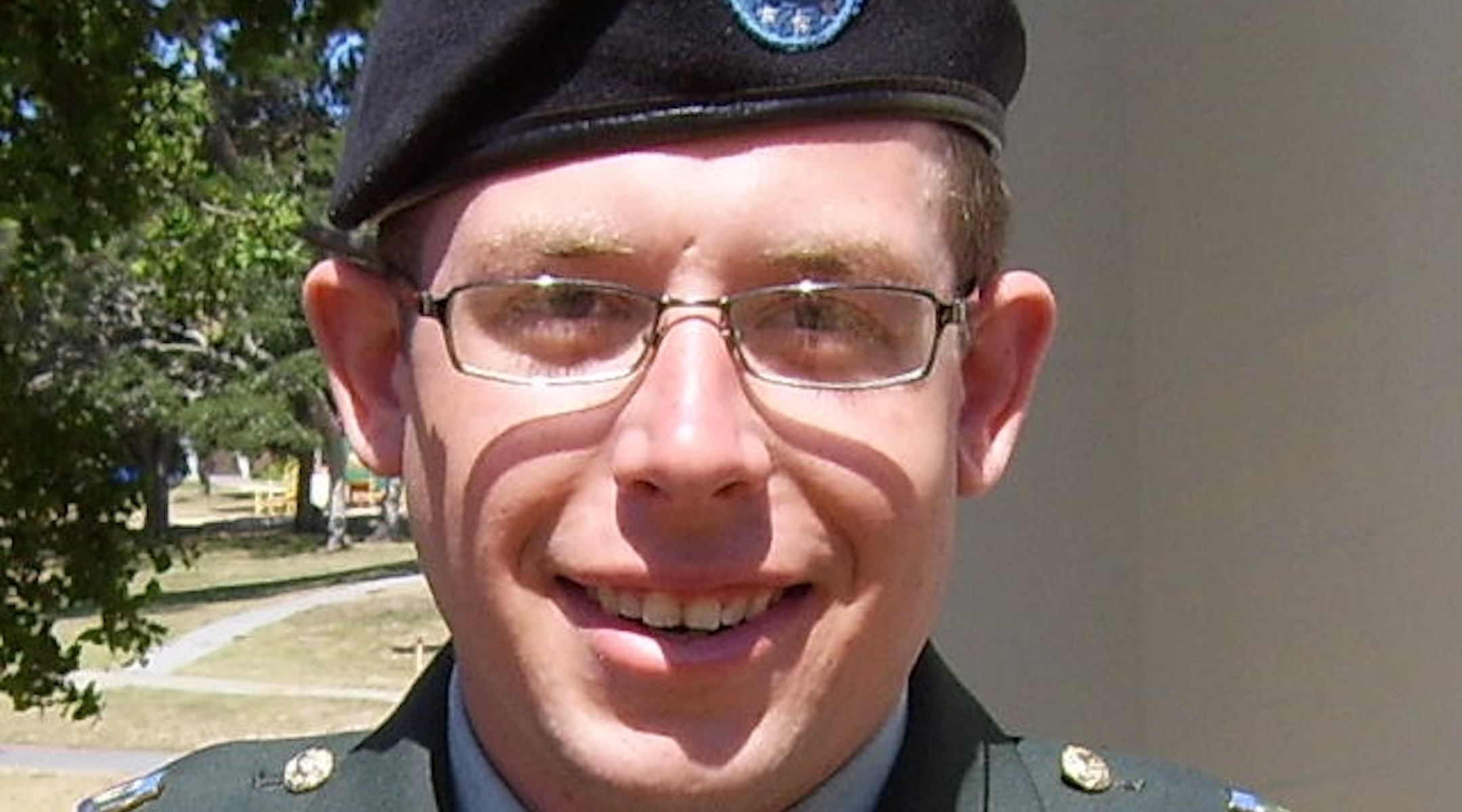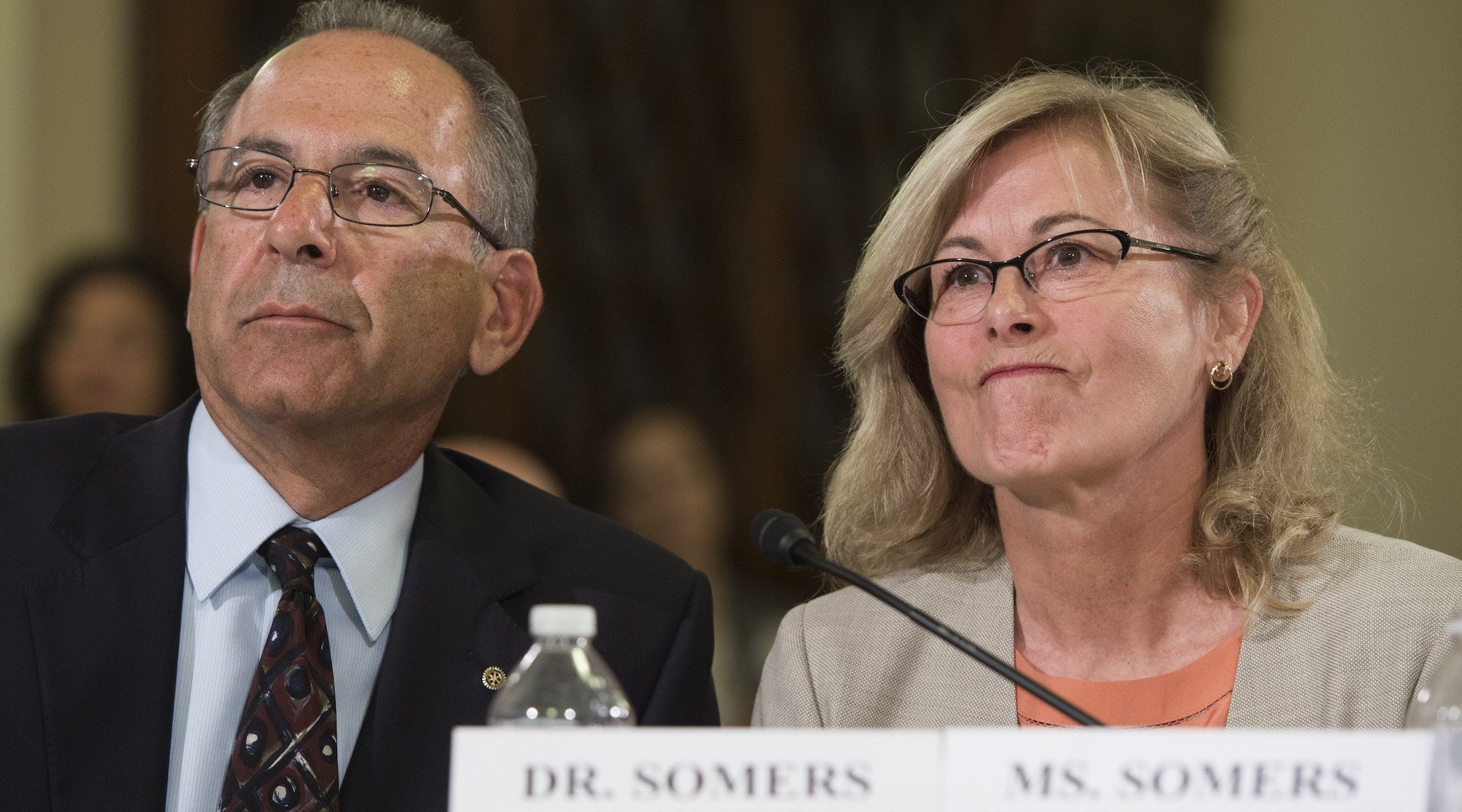(JTA) — In 2007, Sgt. Daniel Somers returned home after two tours in Iraq, where he worked in intelligence and special operations. For years he struggled to get on with his life, but his Army service had left him with deep scars, including post-traumatic stress disorder, traumatic brain injury and fibromyalgia. With time, his mental health issues worsened, and he started experiencing nightly panic attacks and auditory hallucinations.
Six years after his service ended, Daniel shot himself in the head just blocks from his home in Phoenix, Arizona. The 30-year-old Jewish veteran left behind a suicide note that detailed the severity of his mental health issues and the hurdles he faced when seeking help from the Veterans Affairs and Defense departments.
His parents, Howard and Jean, and his wife, Angeline, decided to publish his final letter as a way to draw attention to his struggles. In the note, Daniel said that during his first deployment, he was made to participate in “[w]ar crimes, crimes against humanity.”
“To force me to do these things and then participate in the ensuing coverup is more than any government has the right to demand,” he wrote. “Then, the same government has turned around and abandoned me. They offer no help, and actively block the pursuit of gaining outside help via their corrupt agents at the DEA [the VA’s Survivors’ and Dependents’ Educational Assistance]. Any blame rests with them.”
On Tuesday, U.S. Sen. Kyrsten Sinema, D-Ariz., read from that letter in her maiden speech, in which she talked about a bill named after Daniel that she introduced recently and was passed. The freshman lawmaker neared tears several times in her emotional address — one the late soldier’s parents had been invited to witness.
“Sergeant Somers’ story will sound too familiar to too many military families,” Sinema said. “Perhaps less common is the astonishing bravery demonstrated by Sergeant Somers’ parents, Howard and Jean, after their son’s death.”
Jean Somers described being present during Sinema’s speech as “really amazing” and “humbling.”
“Every time she choked up, we choked up,” she told the Jewish Telegraphic Agency in a phone interview.

Daniel Somers committed suicide after suffering from mental and physical health problems as a result of his Army service in Iraq. (Courtesy of Howard and Jean Somers)
Since Daniel’s suicide in 2013, Howard and Jean, who live in the San Diego area, have become tireless advocates for reform in what they see as a system that failed their son. Among other things, Daniel experienced delays in getting treatment from the VA and was denied individual therapy even though he said he feared disclosing classified information in a group setting.
His parents say they have been able “to perpetuate minor changes.” Many would describe them as far more than that: The couple, who were not involved in politics or activism prior to their son’s death, have testified before Congress and have had hundreds of meetings with lawmakers and government officials sharing their son’s story and advocating for change.
In 2016, a bill named after Daniel — introduced in the House by Sinema, then a congresswoman — was signed into law, ensuring treatment for veterans with access to classified information. If things go according to plan, soon it won’t be the only successful bill named after Daniel.
The Daniel Somers Network of Support Act passed in both the Senate and the House in the past four weeks as part of the 2020 National Defense Authorization Act. Both chambers now must reconcile the differences between the two versions before the final text is sent to the president to sign into law.
It would require the Department of Defense to provide updates about a service member’s mission and future benefits to the service members’ loved ones. Howard and Jean Somers say that having access to information about the routines and stresses of military service, as well as the benefits to which warriors are entitled, is crucial.
“We feel that if we had a better idea of what Daniel had been going through, we might have been able to help him a heck of a lot more than we were able to — because we weren’t able to help him at all,” Howard told JTA. “We had no idea what he had experienced, we had no idea how to approach him.”
The couple still has plenty of work ahead of them. They have drafted a 23-point agenda of various gaps in the system that they want to fix.
“We’ve learned to temper our anger and work within our system,” Howard said. “But I think that the injustice of it all and the way Daniel was treated by the system — this was a young man who had the world’s biggest heart and was the most generous person you’d ever want to meet — and the way he ran into these roadblocks was just incomprehensible for us.”
The Somerses, who attend Temple Emanu-El, a Reform synagogue in San Diego, say that Jewish values around social justice influences everything they do. Howard grew up in a Jewish family, while Jean became a Jew by choice after marriage. She said one thing that really spoke to her was the concept of tikkun olam, the Hebrew phrase for the Jewish precept to repair the world.
“The whole Jewish value system is what drew me to Judaism,” Jean said. “It’s how we live life.”
Another thing that guides them is their late son.
“We just always feel his presence,” she said. “He’s been a guiding force in everything that we’ve done, it’s another way to keep him close.”
To “keep him alive,” added Howard.
JTA has documented Jewish history in real-time for over a century. Keep our journalism strong by joining us in supporting independent, award-winning reporting.






